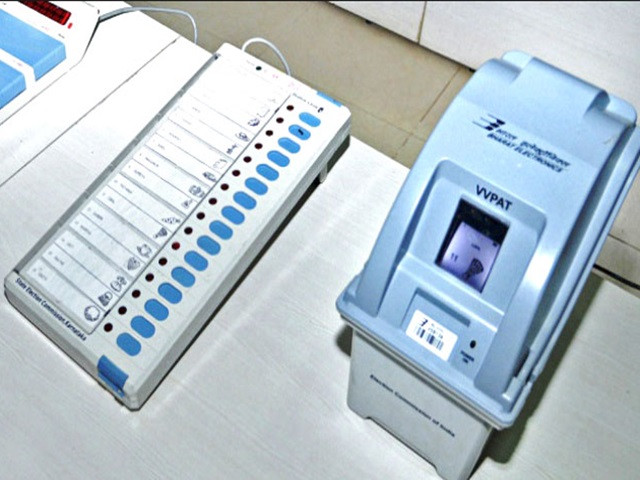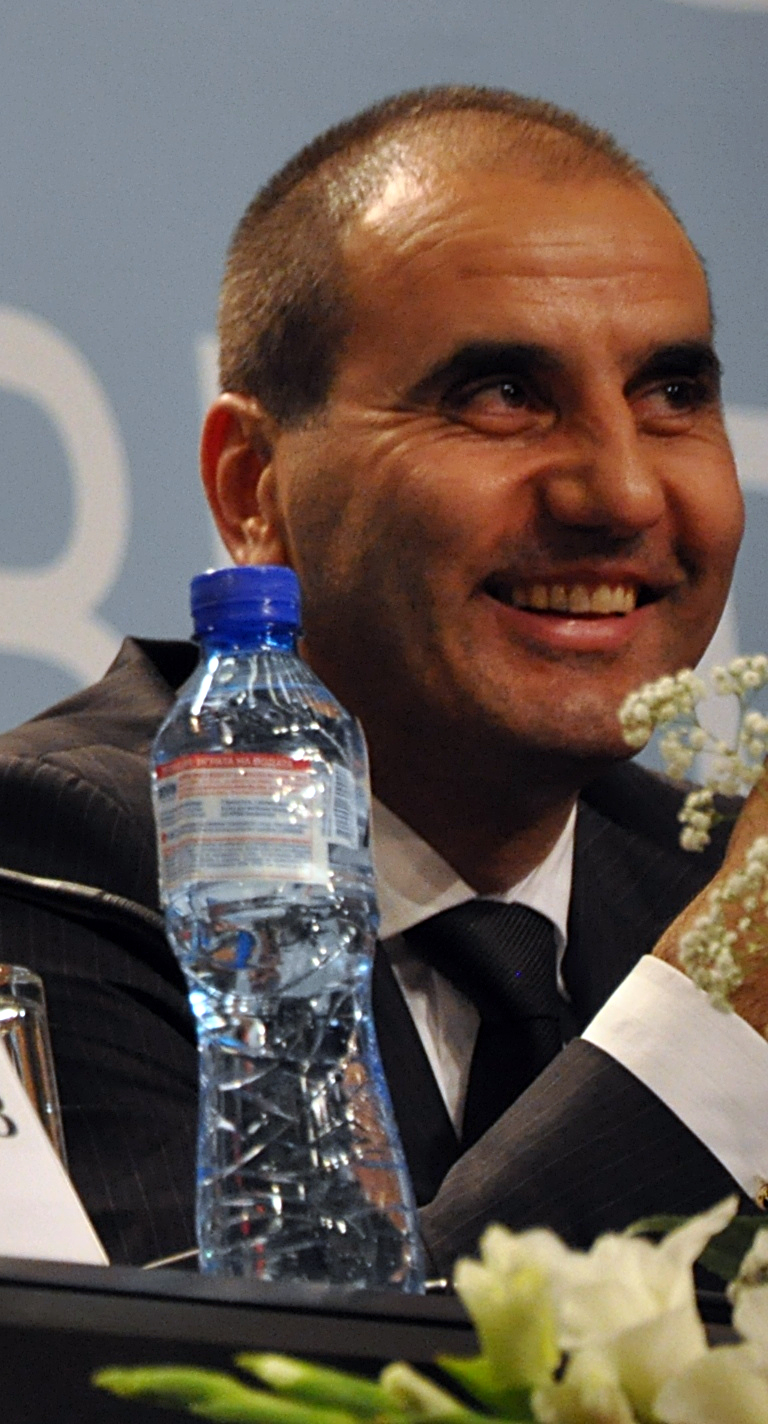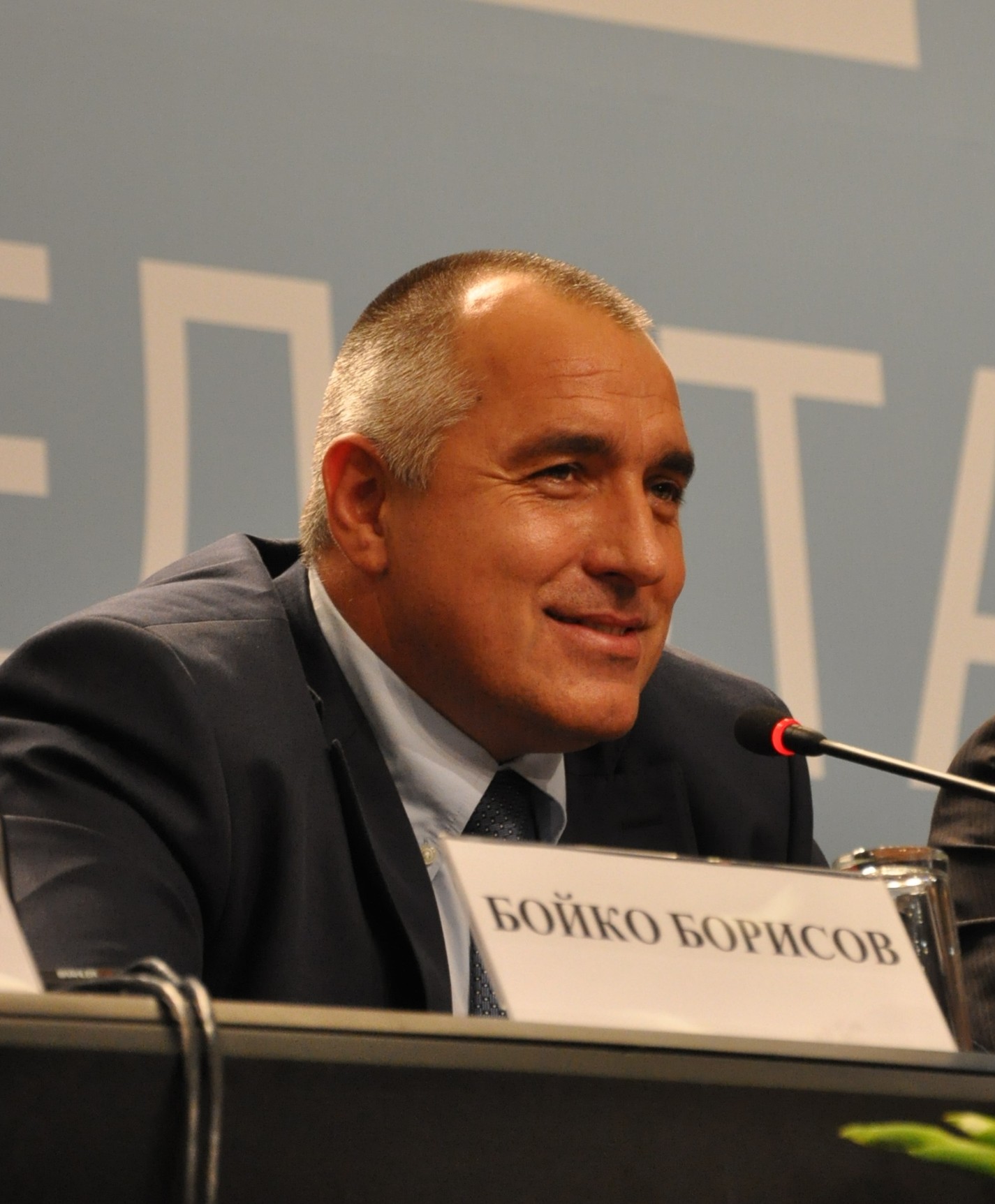|
2015 Bulgarian Electoral Code Referendum
A referendum on introducing electronic voting was held in Bulgaria on 25 October 2015 alongside local elections. Although the referendum resulted was approved by a wide margin, turnout was far below the required threshold to make its result binding. Background A petition was introduced into the Bulgarian Parliament on 10 March 2013 by an Initiative Committee presided by professor Georgi Bliznashki on proposed changes to the electoral code of Bulgaria. These included: reintroducing first-past-the-post voting alongside proportional representation, making voting compulsory and introducing electronic voting. Under current Bulgarian law a referendum is mandatory if a petition receives at least five hundred thousand signatures. Supporters claimed to have 560,000 signatures on the petition, giving Parliament three months (until early June) to authenticate the signatures. Numerous signatures were nullified, however, and so the requirement of half of million authentic signatures was missed ... [...More Info...] [...Related Items...] OR: [Wikipedia] [Google] [Baidu] |
Electronic Voting
Electronic voting is voting that uses electronic means to either aid or handle casting and counting ballots including voting time. Depending on the particular implementation, e-voting may use standalone '' electronic voting machines'' (also called EVM) or computers connected to the Internet (online voting). It may encompass a range of Internet services, from basic transmission of tabulated results to full-function online voting through common connectable household devices. The degree of automation may be limited to marking a paper ballot, or may be a comprehensive system of vote input, vote recording, data encryption and transmission to servers, and consolidation and tabulation of election results. A worthy e-voting system must perform most of these tasks while complying with a set of standards established by regulatory bodies, and must also be capable to deal successfully with strong requirements associated with security, accuracy, speed, privacy, auditability, accessib ... [...More Info...] [...Related Items...] OR: [Wikipedia] [Google] [Baidu] |
National Assembly (Bulgaria)
The National Assembly () is the Unicameralism, unicameral parliament and Legislature, legislative body of the Republic of Bulgaria. The first National Assembly was established in 1879 with the Tarnovo Constitution. During the People's Republic of Bulgaria, communist period between 1946 and 1989, the National Assembly was the Legislature in communist states, supreme organ of state power and the only branch of government in Bulgaria and, in accordance with the principle of unified power, all state organs were subservient to it. Most of the National Assembly's actions were characterized as a Rubber stamp (politics), rubber stamp for the Bulgarian Communist Party (BKP) or as only being able to affect issues of low sensitivity and salience to the Bulgarian communist regime. The BCP controlled nomination and election processes at every level in its political system, allowing it to stamp out any opposition. Ordinary National Assembly The National Assembly consists of 240 members elect ... [...More Info...] [...Related Items...] OR: [Wikipedia] [Google] [Baidu] |
Georgi Bliznashki
Georgi Petkov Bliznashki (, born 4 October 1956) is a Bulgarian politician who served as Prime Minister of Bulgaria in 2014, leading a caretaker government. A member of the Bulgarian Socialist Party, from which he was expelled in 2014, Bliznashki consecutively served as Observer and Member of the European Parliament from 2005 to 2007. He was also a Member of the National Assembly In politics, a national assembly is either a unicameral legislature, the lower house of a bicameral legislature, or both houses of a bicameral legislature together. In the English language it generally means "an assembly composed of the repr ... from 1991 to 1994 and from 2005 to 2009. Expulsion from Socialist Party Bliznashki was expelled from the BSP in March 2014 after he expressed disagreement with party policy. On 6 August 2014 he was appointed to serve as a caretaker Prime Minister of Bulgaria. The Bliznashki Government ended with the election of a new government two months later. Se ... [...More Info...] [...Related Items...] OR: [Wikipedia] [Google] [Baidu] |
First-past-the-post Voting
First-past-the-post (FPTP)—also called choose-one, first-preference plurality (FPP), or simply plurality—is a single-winner voting rule. Voters mark one candidate as their favorite, or first-preference, and the candidate with more first-preference votes than any other candidate (a ''plurality'') is elected, even if they do not have more than half of votes (a '' majority''). FPP has been used to elect part of the British House of Commons since the Middle Ages before spreading throughout the British Empire. Throughout the 20th century, many countries that previously used FPP have abandoned it in favor of other electoral systems, including the former British colonies of Australia and New Zealand. FPP is still officially used in the majority of US states for most elections. However, the combination of partisan primaries and a two-party system in these jurisdictions means that most American elections behave effectively like two-round systems, in which the first round ch ... [...More Info...] [...Related Items...] OR: [Wikipedia] [Google] [Baidu] |
Proportional Representation
Proportional representation (PR) refers to any electoral system under which subgroups of an electorate are reflected proportionately in the elected body. The concept applies mainly to political divisions (Political party, political parties) among voters. The aim of such systems is that all votes cast contribute to the result so that each representative in an assembly is mandated by a roughly equal number of voters, and therefore all votes have equal weight. Under other election systems, a bare Plurality (voting), plurality or a scant majority in a district are all that are used to elect a member or group of members. PR systems provide balanced representation to different factions, usually defined by parties, reflecting how votes were cast. Where only a choice of parties is allowed, the seats are allocated to parties in proportion to the vote tally or ''vote share'' each party receives. Exact proportionality is never achieved under PR systems, except by chance. The use of elector ... [...More Info...] [...Related Items...] OR: [Wikipedia] [Google] [Baidu] |
Bulgarian Socialist Party
The Bulgarian Socialist Party (BSP), also known as The Centenarian, is a centre-left, social democratic political party in Bulgaria. The BSP is a member of the Socialist International, Party of European Socialists, and Progressive Alliance. Although founded in 1990 in its modern form, it traces its political heritage back to the founding of the BRSDP in 1891. It is also Bulgaria's largest party by membership numbers. History The Centenarian moniker comes from the fact that the BSP is recognized as the successor of the Bulgarian Social Democratic Party, which was founded on 2 August 1891 on Buzludzha peak by Dimitar Blagoev, designated in 1903 as the Bulgarian Social Democratic Workers' Party (Narrow Socialists), and later as the Bulgarian Communist Party. After the political changes brought by the Revolutions of 1989, it abandoned Marxism–Leninism and refounded itself as the BSP in April 1990. The party formed a government after the 1990 Bulgarian Constitutional Assembl ... [...More Info...] [...Related Items...] OR: [Wikipedia] [Google] [Baidu] |
Sergei Stanishev
Sergey Dmitrievich Stanishev ( ; born 5 May 1966) is a Bulgarian politician who served Prime Minister of Bulgaria from 2005 to 2009. A member of the Socialist Party, which he led from 2001 to 2014, he later served as Member of the European Parliament from 2014 to 2024. Stanishev was also the President of the European Socialists from 2011 to 2022 and a Member of the National Assembly from 1997 to 2005 and from 2009 to 2014. Early life, education and career Stanishev was born in 1966, in Kherson, Ukrainian SSR (Soviet Union), to Dinah Sergeevna Muhina, a Soviet citizen and , a Bulgarian Communist official who headed the Bulgarian Communist Party's foreign policy department and would later become secretary of the party central committee. After beginning his schooling in Soviet Russia, he then graduated from the 35 SOU "Dobri Voynikov" in Sofia. Stanishev subsequently graduated from Moscow State University in 1989 and obtained his candidate degree (PhD-equivalent) in 1994 both in ... [...More Info...] [...Related Items...] OR: [Wikipedia] [Google] [Baidu] |
GERB
GERB, an acronym for Citizens for European Development of Bulgaria (), is a conservative center-right populist political party which was the ruling party of Bulgaria during the periods between 2009–2013, 2014-2021, 2025-present and was supporting the Denkov government between 2023-2024. History GERB is headed by former Prime Minister of Bulgaria Boyko Borisov, the former mayor of Sofia, former member of the National Movement Simeon II and former personal guard of Todor Zhivkov in the 1990s. The establishment of the party followed the creation of a non-profit organization with the acronym (in Bulgarian) GERB — ''Citizens for European Development of Bulgaria'', earlier the same year. In early January 2007, and early February 2007, the party came second in public polls on party support with around 14%, trailing the Bulgarian Socialist Party which had around 25%. Its stated priorities are fighting crime and corruption, preserving family as the cornerstone of societ ... [...More Info...] [...Related Items...] OR: [Wikipedia] [Google] [Baidu] |
Boyko Borisov
Boyko Metodiev Borisov (, born 13 June 1959) is a Bulgarian politician who served as Prime Minister of Bulgaria on three separate occasions, serving a total of 9 years between 2009 and 2021, making him the country's longest-serving post-communist Prime Minister. A member of the GERB party, which he founded and currently leads, he previously served as Mayor of Sofia from 2005 to 2009. Borisov remains politically active to date and is currently a Member of the National Assembly. Borisov was elected mayor of Sofia in 2005. In December 2005, he was the founding chair of the conservative political party Citizens for European Development of Bulgaria (GERB), becoming its lead candidate in the 2009 general election. Borisov led GERB to a landslide victory in 2009, defeating the incumbent Socialist Party, and resigned as mayor of Sofia to be sworn in as prime minister. He resigned in 2013, after nationwide protests against the government's energy policy, but after leading GERB to vi ... [...More Info...] [...Related Items...] OR: [Wikipedia] [Google] [Baidu] |
2015 In Bulgaria
{{Europe-year-stub ...
Events in the year 2015 in Bulgaria. Incumbents * President: Rosen Plevneliev * Prime Minister: Boyko Borisov Events * 14 January – The government says it will extend a controversial fence along its border with Turkey by 80 km to help stem the flow of illegal immigrants. Deaths *December 5 - Dimitar Iliev Popov, prime minister (1990–1991) References 2010s in Bulgaria Years of the 21st century in Bulgaria Bulgaria Bulgaria Bulgaria, officially the Republic of Bulgaria, is a country in Southeast Europe. It is situated on the eastern portion of the Balkans directly south of the Danube river and west of the Black Sea. Bulgaria is bordered by Greece and Turkey t ... [...More Info...] [...Related Items...] OR: [Wikipedia] [Google] [Baidu] |
Referendums In Bulgaria
A referendum, plebiscite, or ballot measure is a direct vote by the electorate (rather than their representatives) on a proposal, law, or political issue. A referendum may be either binding (resulting in the adoption of a new policy) or advisory (functioning like a large-scale opinion poll). Etymology 'Referendum' is the gerundive form of the Latin verb , literally "to carry back" (from the verb , "to bear, bring, carry" plus the inseparable prefix , here meaning "back"Marchant & Charles, Cassell's Latin Dictionary, 1928, p. 469.). As a gerundive is an adjective,A gerundive is a verbal adjective (Kennedy's Shorter Latin Primer, 1962 edition, p. 91.) not a noun, it cannot be used alone in Latin, and must be contained within a context attached to a noun such as , "A proposal which must be carried back to the people". The addition of the verb (3rd person singular, ) to a gerundive, denotes the idea of necessity or compulsion, that which "must" be done, rather than that which is ... [...More Info...] [...Related Items...] OR: [Wikipedia] [Google] [Baidu] |
2015 Referendums
Fifteen or 15 may refer to: *15 (number) *one of the years 15 BC, AD 15, 1915, 2015 Music * Fifteen (band), a punk rock band Albums * ''15'' (Buckcherry album), 2005 * ''15'' (Ani Lorak album), 2007 * ''15'' (Phatfish album), 2008 * ''15'' (Tuki album), 2025 * ''15'' (mixtape), a 2018 mixtape by Bhad Bhabie * ''Fifteen'' (Green River Ordinance album), 2016 * ''Fifteen'' (The Wailin' Jennys album), 2017 * ''Fifteen'', a 2012 album by Colin James Songs * "Fifteen" (song), a 2008 song by Taylor Swift *"Fifteen", a song by Harry Belafonte from the album '' Love Is a Gentle Thing'' *"15", a song by Rilo Kiley from the album ''Under the Blacklight'' *"15", a song by Marilyn Manson from the album ''The High End of Low'' Other media * ''15'' (film), a 2003 Singaporean film * ''Fifteen'' (TV series), international release name of ''Hillside'', a Canadian-American teen drama * "Fifteen" (''Runaways''), an episode of ''Runaways'' *Fifteen (novel), a 1956 juvenile fic ... [...More Info...] [...Related Items...] OR: [Wikipedia] [Google] [Baidu] |







